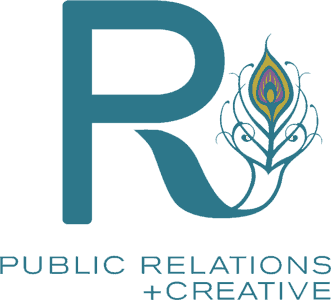R Public Relations Firm
When to Bring in the Pros: Signs It's Time to Hire a PR Firm
In the ever-evolving business landscape, navigating the intricacies of public relations (PR) is crucial for success. While many companies attempt to manage their PR efforts in-house, there often comes a point where the expertise and resources of a dedicated PR firm are indispensable. Recognizing the signs indicating the necessity to hire a PR firm can be the pivotal step towards achieving your business goals and maintaining a positive brand image. Let's explore some of these signs in detail.

Limited Brand Visibility
Is your brand struggling to gain visibility in the market despite your best efforts? This could be a clear indication that it's time to hire a PR firm. PR professionals specialize in enhancing brand visibility through strategic campaigns, media outreach, and targeted messaging. By leveraging their expertise, you can significantly amplify your brand's presence and reach your target audience more effectively.

Crisis Management Challenges
Every business faces challenges and crises at some point, whether it's a negative review, a product recall, or a PR scandal. Handling these situations with finesse and professionalism is crucial to protecting your brand's reputation. A PR firm has the experience and skills necessary to navigate crises efficiently, minimize damage, and restore public trust. Their swift action and strategic communication can make all the difference in how your brand emerges from challenging situations.
Lack of Media Relationships
Building and maintaining relationships with journalists, bloggers, and influencers is essential for securing media coverage and positive publicity. If your company lacks these connections or struggles to garner media attention, it's a sign that you could benefit from hiring a PR firm. PR professionals have established networks and know-how to pitch stories effectively, increasing your chances of getting featured in relevant publications and reaching a broader audience.
Ineffective Communication Strategies
Effective communication is the cornerstone of successful PR campaigns. If your current communication strategies are falling short or failing to resonate with your target audience, it may be time to bring in external expertise. A PR firm can assess your existing strategies, identify areas for improvement, and develop tailored communication plans that align with your brand's objectives. Whether it's crafting compelling press releases, managing social media channels, or coordinating events, PR professionals can help you communicate your message more effectively.
Stagnant Growth:
Are you experiencing stagnant growth or struggling to achieve your business objectives despite your best efforts? A lack of strategic PR initiatives could be holding your company back. Hiring a PR firm can inject fresh ideas, innovation, and momentum into your marketing efforts, driving growth and achieving tangible results. From launching new products to repositioning your brand in the market, PR professionals can provide the strategic guidance and support needed to propel your business forward.

Overwhelmed Internal Resources
Managing PR activities alongside day-to-day business operations can be overwhelming, especially for small and medium-sized enterprises (SMEs) with limited resources. If your internal team is stretched thin or lacks the expertise to handle PR effectively, outsourcing to a PR firm can offer much-needed relief. By delegating PR responsibilities to professionals who specialize in the field, you can free up your team's time and focus on core business activities while still reaping the benefits of a comprehensive PR strategy.
Competitive Pressures
In today's competitive marketplace, staying ahead of the competition requires proactive PR efforts that differentiate your brand and capture consumer attention. If you find your competitors consistently outperforming you in terms of media coverage, brand reputation, or market share, it may be time to level the playing field by hiring a PR firm. With their strategic insights and creative approach, PR professionals can help you stand out from the crowd and gain a competitive edge in your industry.
Recognizing the signs that it's time to hire a PR firm is essential for any business looking to enhance its brand visibility, manage crises effectively, and achieve its growth objectives. Whether you're struggling with limited resources, stagnant growth, or ineffective communication strategies, outsourcing your PR efforts to a dedicated firm can provide the expertise, support, and results you need to succeed in today's competitive market. Don't wait until it's too late — invest in hiring a PR firm and take your brand to new heights. Our experienced team would love to help you do just that. To learn more, schedule a free consultation with RPR Firm today.
Event Management in PR: Orchestrating Memorable Experiences to Amplify Brand Messaging
In the fast-paced world of public relations (PR), creating meaningful connections between brands and their audiences is essential. While digital communication channels have expanded our reach, the value of face-to-face interactions remains unmatched. This is where event management in PR shines brightly, serving as a powerful tool to craft unforgettable experiences that amplify brand messaging and foster deeper engagement.
At the heart of every successful PR event lies meticulous planning and execution. From product launches to press conferences and galas to trade shows, each occasion presents a unique opportunity to captivate audiences and leave a lasting impression. It's not just about hosting an event; it's about curating an experience that resonates with attendees on a personal level, evoking emotions that transcend the event itself.
The Balance of Event Management
Elite public relations agencies understand the intricate dance between creativity and strategy inherent in event management. They recognize that every detail, from venue selection to guest list curation, contributes to the overall narrative of the brand. By seamlessly integrating PR objectives with event logistics, these agencies elevate ordinary gatherings into extraordinary showcases of brand identity and values.
One of the key advantages of PR events is their ability to generate buzz and media coverage. A well-crafted event has the potential to garner attention from journalists, influencers, and industry insiders, amplifying the brand's message far beyond the confines of the venue. Whether it's a product unveiling that sparks curiosity or a charity gala that tugs at heartstrings, PR events have the power to ignite conversations and shape public perception.

However, orchestrating a successful PR event requires more than just throwing a party. It demands a strategic approach that begins long before the first guest arrives and extends well after the last one leaves. It starts with a clear understanding of the brand's objectives and target audience, followed by meticulous planning to ensure that every aspect of the event aligns with these goals.
From selecting the perfect venue to coordinating with vendors and managing RSVPs, event management in PR requires a delicate balance of creativity, organization, and attention to detail. It's about creating an immersive experience that captivates all five senses, leaving attendees with memories they'll cherish long after the event concludes.
Make a Connection and Make It Last
Moreover, PR events offer a valuable opportunity for brands to humanize their image and connect with their audience on a personal level. In an era dominated by digital interactions, face-to-face encounters provide a rare chance for genuine engagement. Whether it's through interactive workshops, networking opportunities, or intimate gatherings, PR events allow brands to forge meaningful relationships with their stakeholders.
In the age of social media, the impact of PR events extends far beyond the physical realm. Platforms like Instagram, Twitter, and LinkedIn serve as virtual stages where attendees can share their experiences in real-time, amplifying the brand's message to a global audience. By leveraging social media before, during, and after the event, PR agencies can extend the reach and longevity of their campaigns, maximizing ROI and brand exposure.

Use Each Event to Earn Trust
Furthermore, PR events provide a platform for brands to showcase their thought leadership and industry expertise. Whether it's through panel discussions, keynote speeches, or experiential activations, events offer a captive audience eager to learn and engage. By positioning themselves as authorities in their respective fields, brands can strengthen their credibility and influence, earning the trust and loyalty of consumers and stakeholders alike.
Event management plays a crucial role in the realm of public relations, serving as a powerful tool to amplify brand messaging and foster deeper connections with audiences. From meticulously planning every detail to leveraging social media for maximum impact, PR events offer a unique opportunity to create memorable experiences that leave a lasting impression. As elite public relations agencies continue to push the boundaries of creativity and innovation, the future of event management in PR looks brighter than ever before.
The Manifest Names R Public Relations Nashville’s Most Reviewed Digital Marketing Leader for 2024
Founded in 2008, R Public Relations is an award-winning boutique PR firm that’s dedicated to helping businesses creatively express their stories. Our team loves working with passionate brands, regardless of size and industry. For us, nothing is more important than allowing our clients to show their authenticity when making a true connection with their customers.

Because of the amazing partnerships we’ve shared with our clients throughout the years, our team was recently hailed as a standout by The Manifest’s annual company awards. According to their latest report, RPR is among the top ten most reviewed and recommended digital marketing companies in Nashville, Tennessee, for 2024!
The Manifest is an independent business news resource based in Washington, DC, that publishes insightful data-driven content. Each year, the platform spotlights exceptional service providers who’ve built meaningful relationships with their clients. The awardees are chosen based on the number of honest testimonials they’ve received over the preceding 12 months.

We’re extremely honored and humbled to receive this recognition, as it reflects how much our clients believe in us. We owe this shining moment to all our incredible clients, especially those who took the time to review our services. We dedicate this award to all of you.
On behalf of the entire R Public Relations team, thank you so much to each and everyone who supported us. We value your trust more than we can say and treasure our phenomenal partnerships.
What better way to celebrate this moment than to welcome new opportunities? Connect with R Public Relations today and let’s work together! We look forward to hearing from you.










